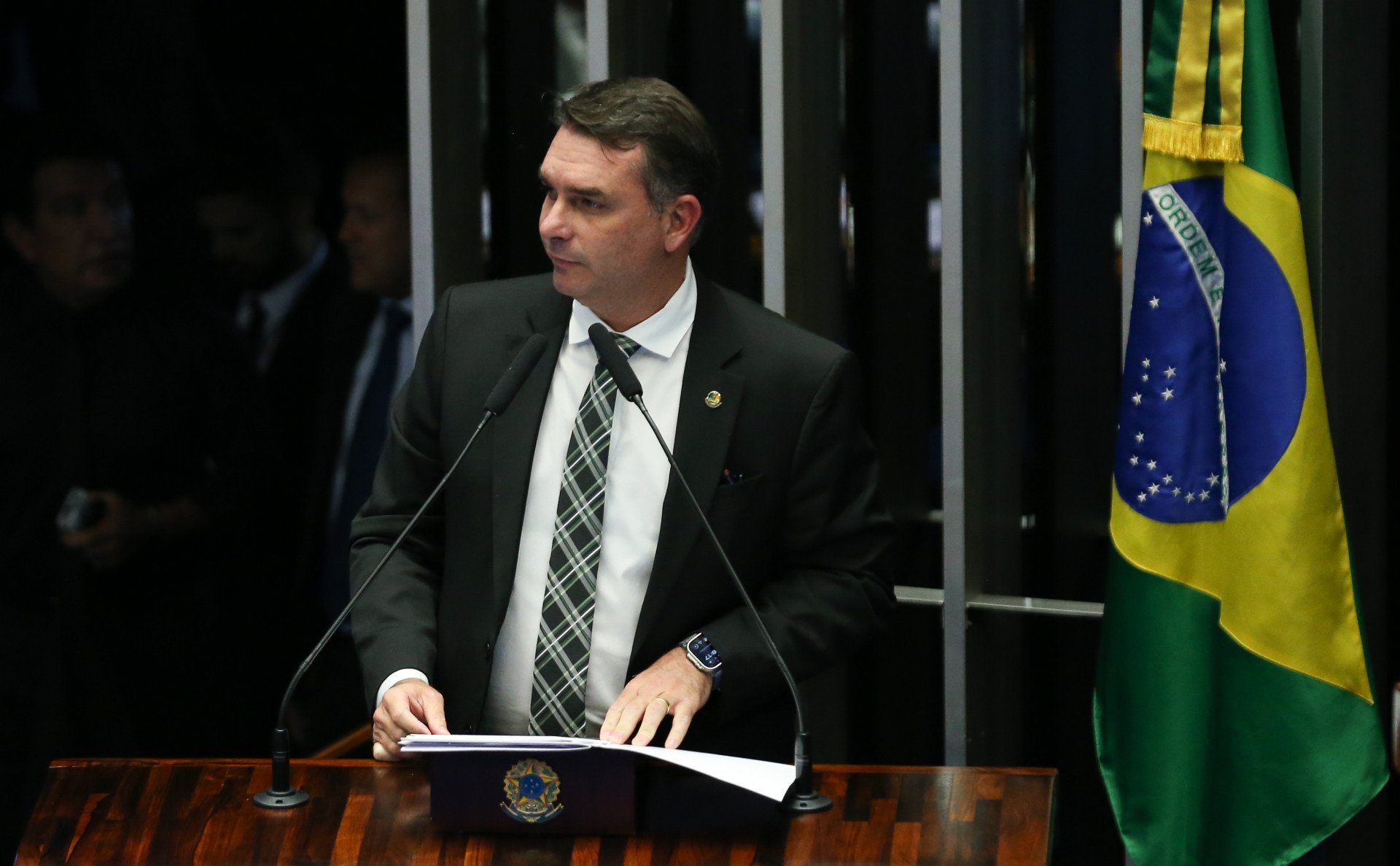
Senator Flávio Bolsonaro (PL-RJ) Brazil Agency
Published 04/27/2024 22:34
Secom announced on Wednesday, the 24th, the winners of the tender, opened in January this year, to hire four advertising agencies that will manage the federal government’s social networks.
The representation made by the senator is against the president and the minister of Secom, Paulo Pimenta. Flávio Bolsonaro claims that the government’s bidding serves personal interests and the contracts can be used “to promote Lula’s personal image”, which “constitutes an act of administrative improbity”.
The senator also says that the results of the competition would have been anticipated by the press one day before the winners were officially announced. The website O Antagonista reported in a report published on Wednesday that it knew who the winners would be since the previous day, Tuesday, the 23rd.
Furthermore, Flávio Bolsonaro requests an analysis of the alleged “persecution” of political opponents through company services. “Another factor that draws attention and requires due investigation by Your Excellencies concerns paragraph b of item 2.1 of the notice, in which it is noted that agencies will be hired to carry out measures that involve the ‘moderation of content and profiles in social networks’, which suggests the establishment of a likely ‘Persecution Office’, with the purpose of somehow monitoring political opponents to enable some type of reprisal”, says the senator in his representation to the TCU.
The first four placed in the evaluation of technical proposals were Usina Digital, Área Comunicação, Moringa L2W3 and the BR e Tal Consortium, composed of BRMais and Digi&Tal. Moringa L2W3 and the Comunicação Area were disqualified after opening the envelopes and publishing the initial classification, as they did not deliver all the documents required by the notice. The two did not present sufficient certificates to prove their respective technical capabilities and Moringa also did not make its balance sheet available in the Unified Supplier Registration System (Sicaf).
The agencies were replaced by IComunicação and Clara Digital, which came in fifth and sixth place in the technical classification. The two companies are not mentioned in the document presented by the senator to the TCU. Each of the four agencies should receive around R$49 million for contracts lasting one year, which can be extended.
The change in the government’s digital communication is the Planalto Palace’s new bet to increase the Lula government’s popularity ratings, which have fallen in surveys carried out since the beginning of this year. The president has complained on several occasions, including publicly, that he does not see the government’s good actions resonating among the population.
The Lula government adopted the “best technique” as a criterion for choosing agencies instead of the lowest price. The winning companies had to present technical proposals that proved their ability to perform tasks such as mapping the digital presence of ministries and podcasts. 24 companies participated in the dispute, including some important agencies with a historical relationship with the federal government.
Secom justified in the notice that the hiring “aims to comply with the principle of publicity and the right to information, through digital communication actions that aim to disseminate ideas and principles, position institutions and programs, disseminate public initiatives and policies, inform and guide the general public”.
The companies will be responsible for creating, implementing and developing “innovative forms of digital communication designed to expand the effects of government messages and content.” As shown by Estadão, one of the Lula government’s main bets to expand the PT member’s presence on social media, the weekly podcast “Conversa com o Presidente”, failed in audience ratings and was discontinued.
The agencies will also have to use “machine learning and AI (artificial intelligence) techniques to carry out sentiment analysis of news of interest to the federal government.” Another requirement for selection was the companies’ ability to conduct “high-intensity” research on social media on government-related topics. These actions map, for example, the reception of the actions of President Lula and his ministers in the digital environment.
